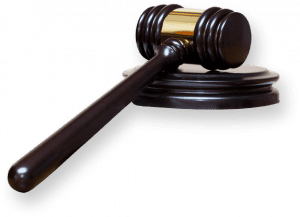2290 East Speedway, Blvd
Tucson, AZ 85719
520-795-2235
Call Us
[email protected]
Contact Us via Email
Tucson, AZ 85719
Call Us
Contact Us via Email

Vicarious trauma is second-hand trauma that many legal professionals face when defending clients. Professionals affected by vicarious trauma can become more cynical of their world. This effect can cause legal professionals to struggle with existential questions and developmental health issues.
Examples of common mental health issues caused by vicarious trauma include depression, anxiety, and PTSD-like symptoms. Additionally, some professionals will have other adverse reactions to vicarious trauma, such as feeling hopeless, constantly worrying about potential dangers, emotionally numb, or having problems with personal relationships.
While anyone working with victims can be at risk of being affected by vicarious trauma, the legal professionals who work in criminal justice and family law tend to be the most affected. These results are because they are more exposed to traumatic stories that would naturally cause them to be empathetic.
Aside from professionals in specific legal fields having a greater possibility of being susceptible to vicarious trauma, personal factors can also make certain people more vulnerable. These factors include:
As vicarious trauma causes legal professionals to have an increasingly hostile point of view and cause mental health issues, more and more professionals are quitting the field.
Vicarious trauma can also lead to other issues, such as excessive drinking to deal with the stress. In fact, in a study by the American Bar Association in 2016, 20.6% of attorneys who participated in the survey indicated a problematic level of drinking. Even more shocking is that 61.15% of the respondents had anxiety, and 45.7% had depression. These statistics show the dire need for mental health reform in legal professions. If the legal system does not change how law professionals are supported, the number of people interested in a law career will likely decrease. In contrast, the number of lawyers who quit due to vicarious trauma will increase.
Lawyers have recently pushed to recognize how and why legal professionals are at a higher risk for mental health issues. This push has included a call for lawyers and legal professionals to be better trained in dealing with clients who have faced trauma.
Separating oneself can be difficult since each client’s story is unique, and it is hard not to get attached or relate to others. These training sessions help the lawyer empathize from afar without internalizing the client’s suffering. Many law professionals also suggest that fields with high levels of vicarious trauma should provide organizational support to professionals working in this area. Employers are also encouraged to check on their employees and have an open-door policy where they can easily discuss their concerns.
As a Family Law Attorney in Arizona, Erika L. Cossitt Volpiano, P.C. has been part of the legal professionals working to spread awareness of vicarious trauma for many years. She has taught vicarious trauma’s dangers and adverse effects throughout the years in a creative and informative presentation.
Take control of your future and the effects of vicarious trauma. As a family law mediation attorney in Arizona, Erika has firsthand seen the effects of vicarious trauma. Because of this, she teaches other legal professionals what to look for and practices mindful meditation to ease the effects and regain confidence. Contact ELCV LAW today at 520-795-2233. You can also schedule an appointment at www.elcvlaw.com.
Disclaimer: The content in this article is for informational purposes only and should not take the place of actual legal advice. Not all circumstances are the same, and it is suggested that you should seek legal counsel if you need assistance in any of these areas.

